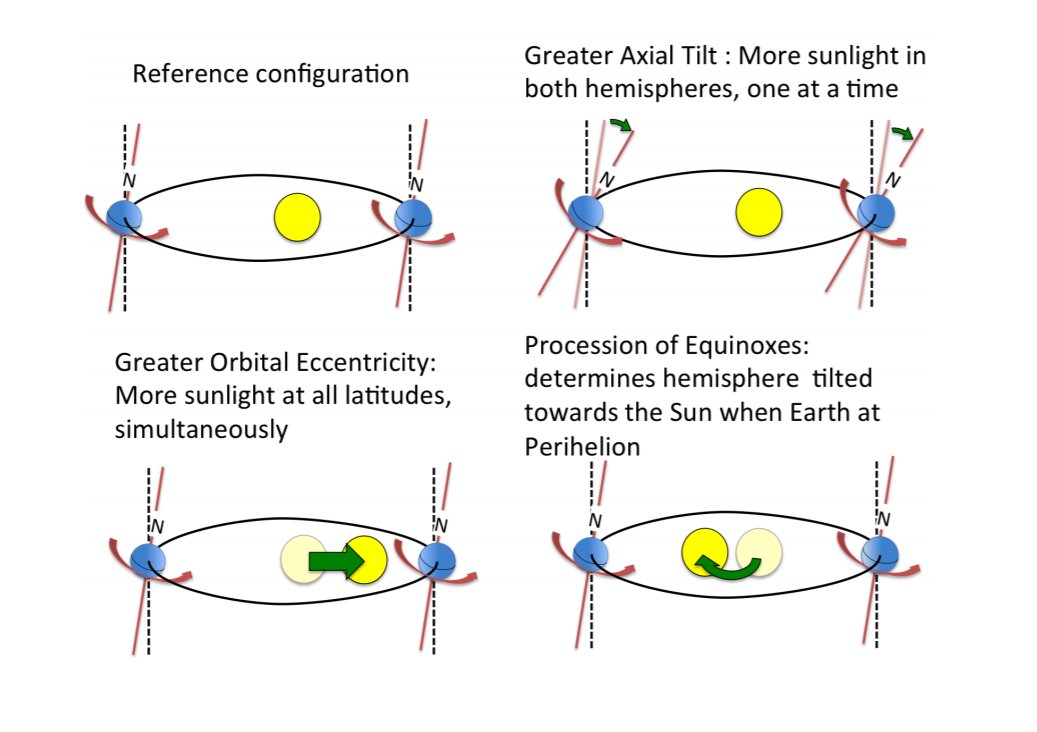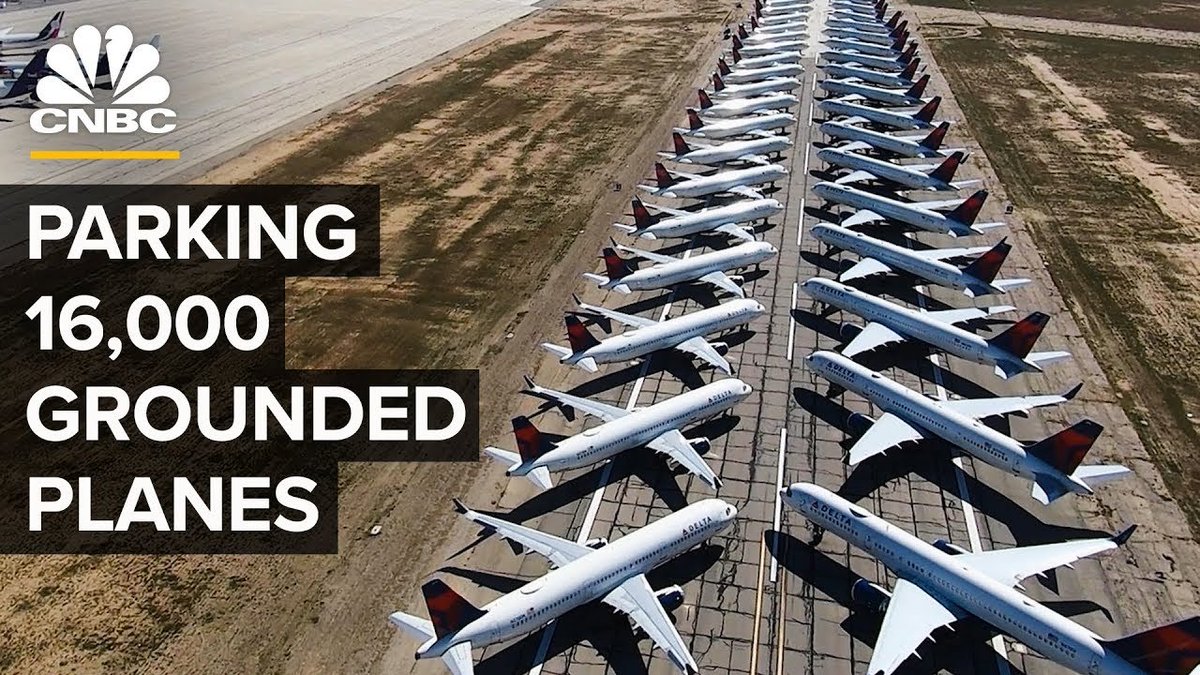
Saw a few posts on the Neolithic Revolution in the last few days,so I thought I could interrupt the regularly scheduled programming of making fun of sourdough bakers and pulling my hair at the Covid response of the national governments of both my countries of birth and residence,
and actually talk about my research on this. Inventing farming is clearly one of the most important advances humanity has made. It is also very mysterious! The main puzzles are:
1. Why was it invented independently by several places around the same time?
2. Why wasn't it invented earlier?
3. What did those places have in common?
4. Why did people become shorter after starting to farm?
2. Why wasn't it invented earlier?
3. What did those places have in common?
4. Why did people become shorter after starting to farm?
These are the places that archaeologists generally agree invented agriculture on their own. There's a bunch more that some or many think might also have been independent, but these are the clearest. Also these are the important ones in terms of spread of crops! 
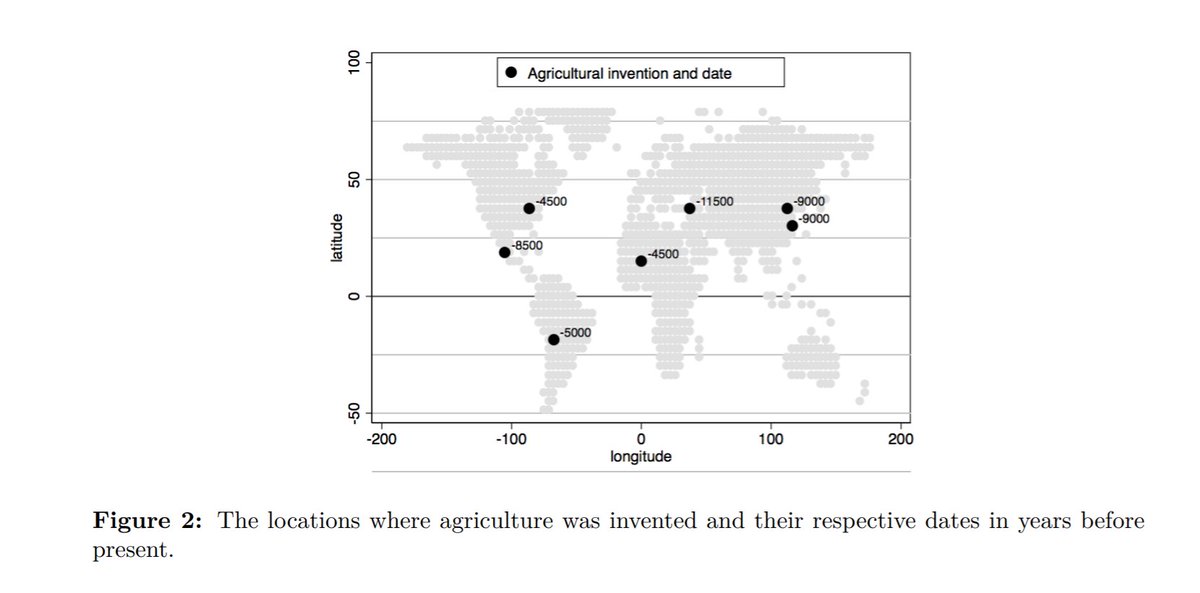
Superficially they seem to have nothing in common. Eastern North America is pretty much as different a climate from Sub Saharan Africa as you can get, while remaining inhabitable!
So if inventing farming was sufficiently easy that it was done in such different places, why wasn't it done in the previous 100k years, that H Sapiens had been out of Africa, or even the previous 100k years they had been only in in Africa?
Let's look at some popular explanations first. Was it the fact that the last Ice Age ended around 10k years ago? Sounds reasonable, you can't farm on ice! But if all you needed was warm weather, why not farm a little more South, even during the Ice Age?The tropics were never cold 
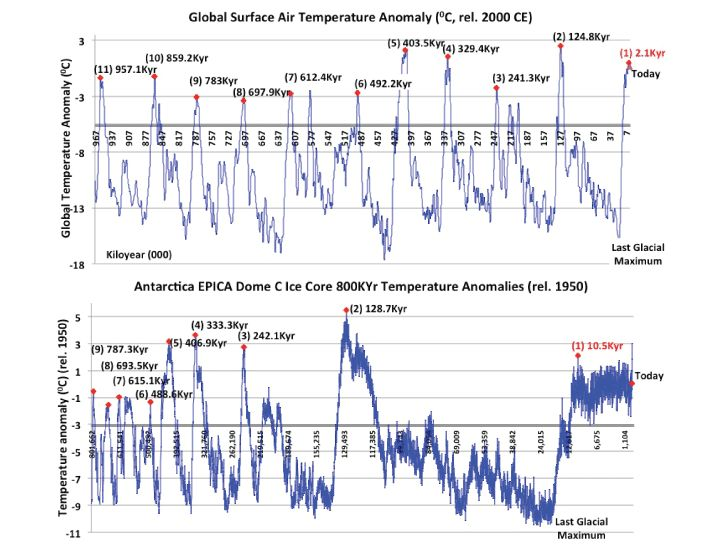
What about large seeded grasses? They help for sure, but they are probably better as an explanation for why Eurasia did well in the long run, than for why agriculture happened. For one thing large seeded grasses didn't just magically appear out of nowhere 10k years ago.
And in any case gourds, potatoes, millet show you don't need large seeded grasses to start farming or even become very good at it indeed. So large seeded grasses: good to have, not essential.
Next theory, population growth. Maybe when there were only a few humans, there was enough land for just hunting and gathering, but when population increased, natural food grew scarce, and people HAD to invent farming or starve.
There are two problems with this theory. The first one is that populations didn't just spread uniformly all over the world, and then increase at the same time, like say atmospheric CO2! Rather densities would have first increased in Africa, motivating people to spread out from
...there. There would thus be a wave of population density radiating from Africa. If pop density was the key, agriculture should have first started there, then Middle East, the India and Europe, China, and finally the Americas. What do we see? Basically no relationship! 
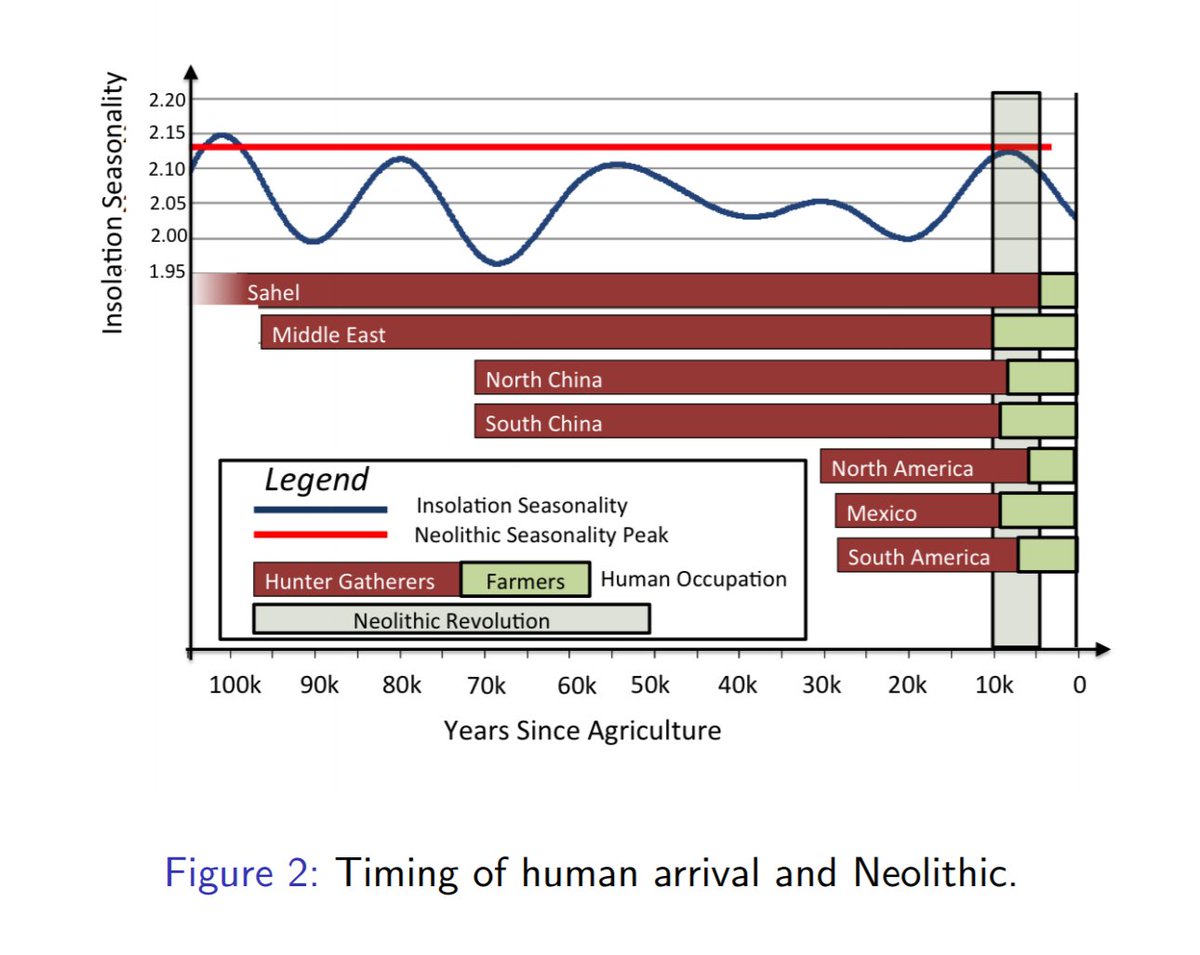
The second problem is that in any given location,you are unlikely to see populations slowly growing until they gently come to rest against the carrying capacity of their environment,which nudges them into agriculture gentler than a fly decal redirecting pee in a urinal. @R_Thaler
Rather the amount of food available in any given year is always jumping up and down. Say, i.i.d. between supporting 500 and 1500 people. When you have less than 500 people the famines never bind. Even when you have a few more, generally nothing happens, until there is a frost
or a fire, or something else, and now you have more people than food! Sure, this would be a great time to invent a way of making more food! But is it likely? Not really. The traditional response to having more food than people TODAY is not to invent ...
... a radically new form of subsistence. No, the traditional response is to die in large numbers. After the famine, the food constraint no longer binds, and you have little incentive to start farming again. So growing population density is an unlikely candidate.
Last competing theory I'll talk about is "elites made them do it in order to expropriate crops" (Why nations fail?). This is fine as far as it goes, but wouldn't the elites have been just as rapacious in the long millennia before 12k years ago? Why did different elites strike...
...on the same idea around the same time? I am sure the elites liked this farming thing, but something must have changed to either make it easier for them, or else the whole concept more appealing to their subjects.
Ok so what is the explanation! Believe it or not, in a sense, extraterrestrial forces!
Specifically the Milankovitch Cycles, which describe how Earth's orbit changes under the influence of the gravity from other planets, and how these orbital changes affect Earth's climate. 
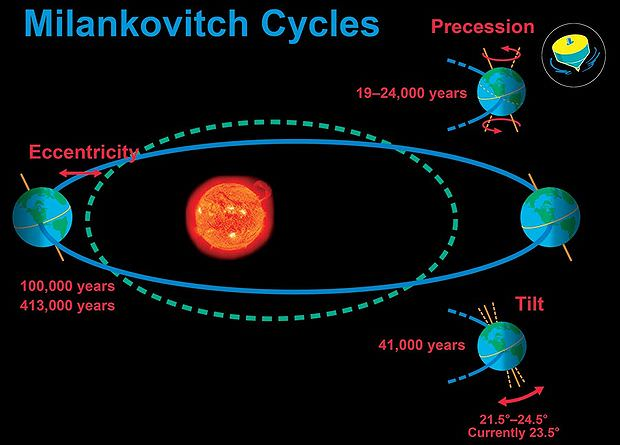
There are three effects of interest. The tilt of the axis becomes bigger or small, the orbit becomes more or less elliptical, and the relationship of the perihelion (closest approach to the sun) and the solstices all change with different and deterministically known frequencies.
As Milankovitch explained, this increases or decreases seasonality (and also explain the arrival and end of Ice Ages: high seasonality -> less snowfall AND more snowmelt). Specifically those cycles aligned such that starting around 12k years ago Northern Hemisphere seasonality 
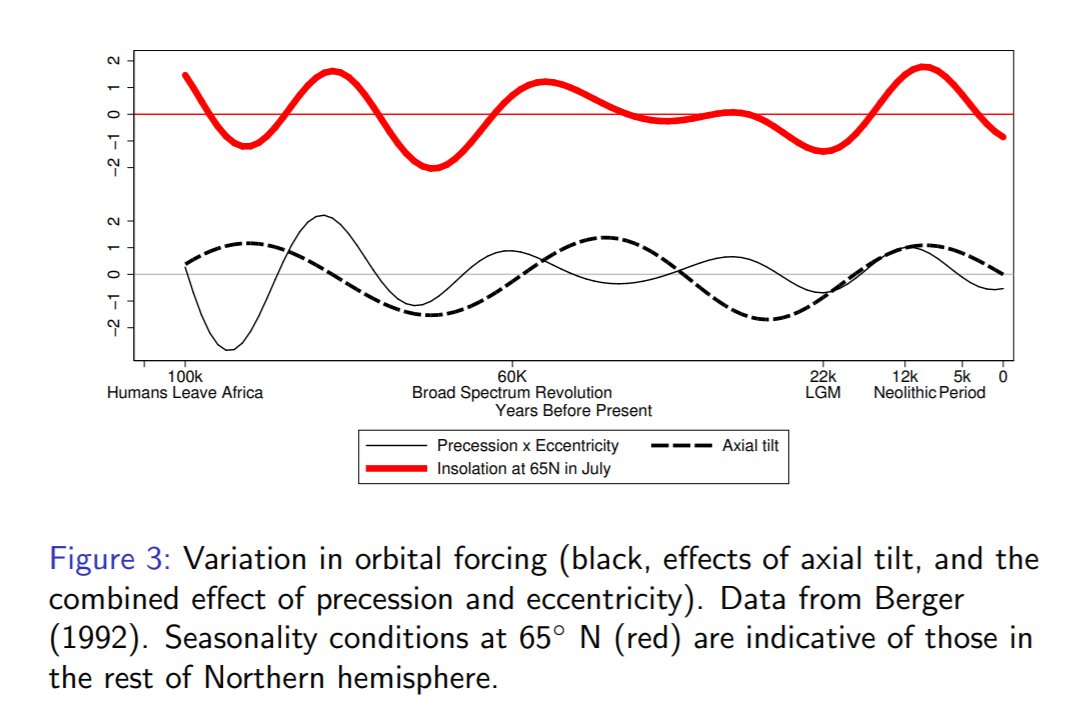
was higher than it had been since Humans left Africa, and certainly higher than since they had achieved Behavioral Modernity. Why was seasonality important?
Humans went from being nomadic hunter-gatherers to being settled farmers. These are usually taken as fixed bundles, but actually these are independent choices! You can be a settled hunter gatherer, or (more difficult) a nomadic farmer! More later after I play with my daughter.
Ok so nomadism/sedentarism is the residence pattern choice, hunting and gathering/agriculture is the food production strategy. Initially almost all our ancestors were nomadic and hunter gatherers. This adds a chicken and egg puzzle! How do you learn how to farm when always...
...moving around. Farming means you plant something and it only produces food in a few months! What's the point of planting if you're not going to be there to harvest? BUT why would you ever become sedentary if you don't know how to farm? Nomadism is great!
Nomads can in general gather more resources, since whenever one area is running low (either because seasons, or they just ate everything) they can just move to another patch. They're hard to track, so it's easier to defend against raids. You also leave a lot of parasites behind
so you're healthier. You don't need to be as careful about bedticks, cholera, etc if you're always moving around. E.g. even when the San people stay in the same area for longer periods, they build a new camp every few weeks and burn down the old one. Less thicks, etc.
The first answer comes from Testart (1982) you can become sedentary while remaining a hunter gatherer if you want to STORE FOOD. Food is heavy. Even fat, the most energy dense food possible, is only about 9000 Kcal/kg.
So in practice you can only carry a few weeks worth of food. Tops. Not enough to make it through winter. So if you live in a place where food is abundant on average, but seasonally scarce AND geographically correlated, it make sense to store food. And to do that you have to be...
...sedentary. This was Testart. What I added is the link from the Milankovich Cycles to Seasonality to widespread adoption of agriculture.
The idea is that once you are sedentary and know how to store, it is much easier to take whatever rudimentary horticultural tech you have and start intensifying it!
So the prototypical transition story would look something like this: initially, you have a nomadic hunting and gathering band. They arrive in an area and set up camp, gather whatever plants and hunt whatever animals are in the area. Note that hunt can mean any number of things.
It could be what (I think) we generally imagine. Epic struggles against the megafauna of the day. But does this look like any way to feed a family? 
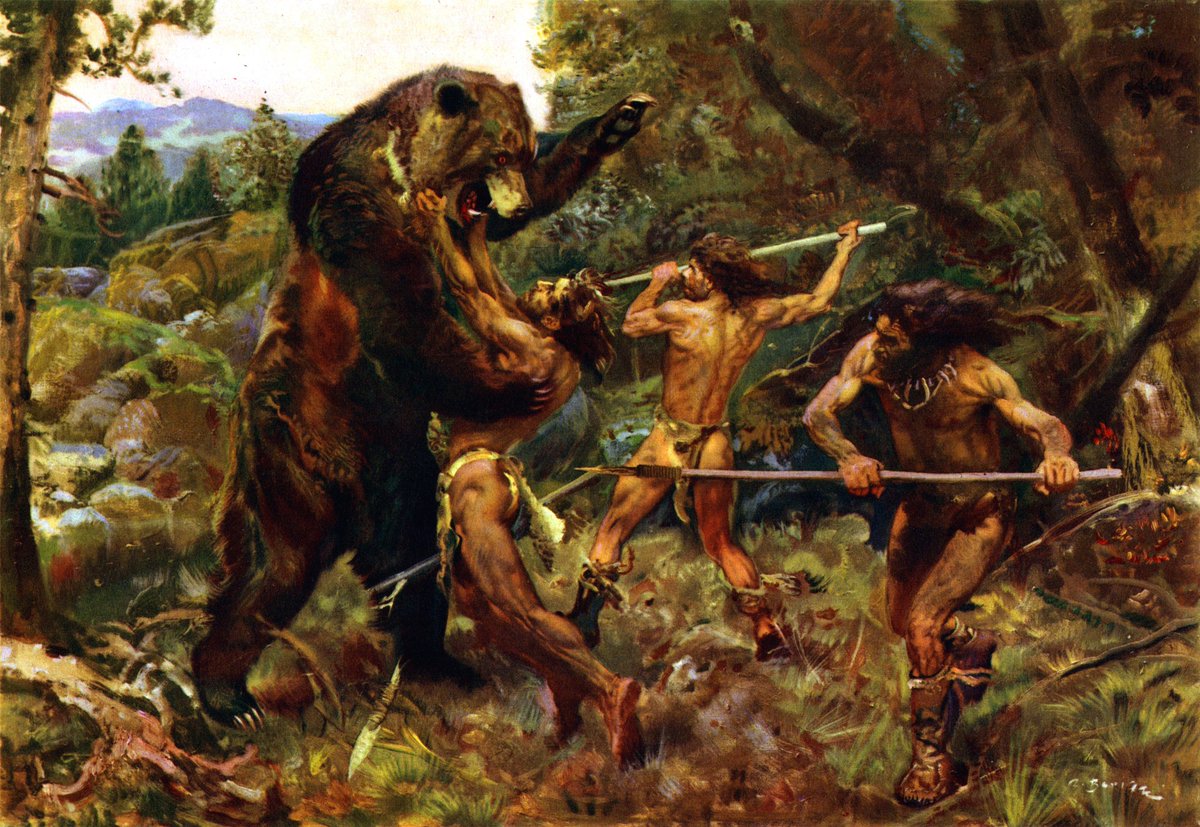
So in practice a lot of it would have been small to medium size mammals and reptiles, perhaps trapped by the sort of designs we see around today 
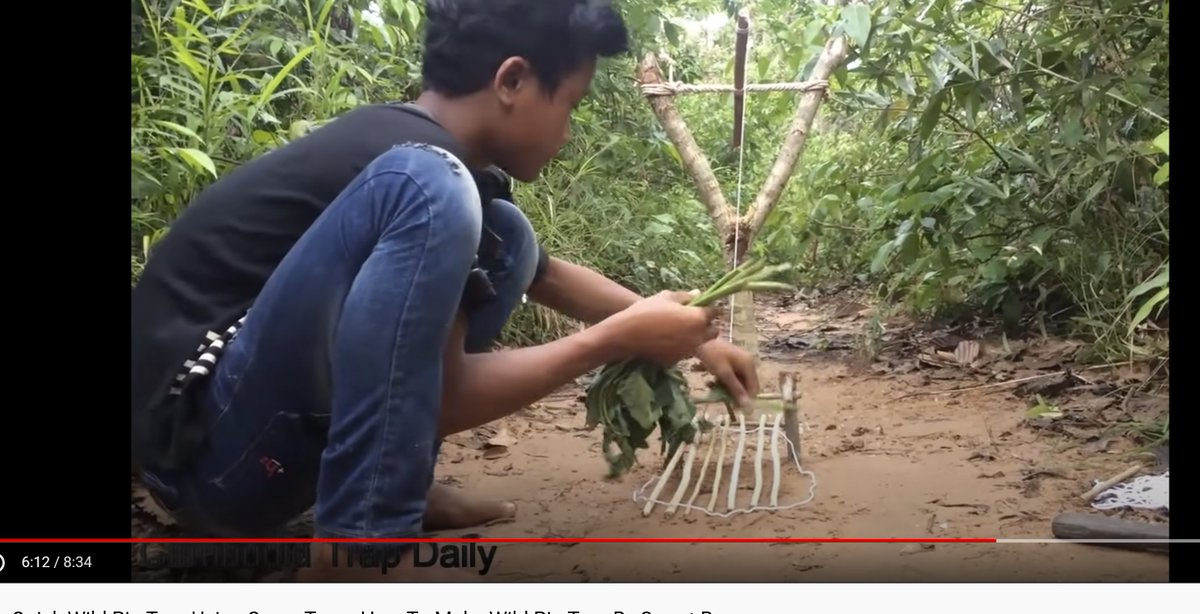
Also, I think there's a tendency to overemphasize the hunting part.For many communities it was actually the GATHERING part that kept people alive, though we tend to ignore it.Seeds, fruits, bulbs, if it had calories in it, one of our ancestors has probably eaten it at this point.
One way to think of it is that the gatherers kept the band alive, providing the bulk of the dependable day to day calories through starches, so that they rarely went hungry. But the hunting part supplied most of the protein, which while more discontinuous,
was crucial for maintaining the long term health of the band. Over a few weeks to months, the band would have collected all the local low hanging fruit, metaphorical and literal, and it was time to move on. They would pick up all their belonging and kids move a few kilometers
and the process would repeat. Note that this put very definite on the sort of technology that could be developed. You could only own a few pounds of stuff. Tools had to be either easy to make at each campsite, or else extremely light. 
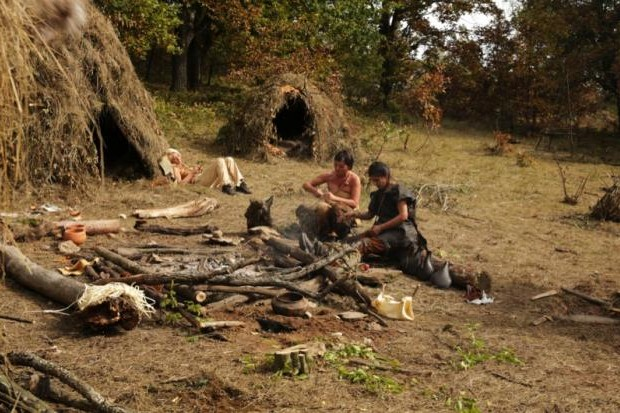
Remember, if you have any infants, you have to carry them with you! So you can't own anything that's intricate AND heavy. This limits very heavily the possible technology.
Just as important as the hunting and gathering skills of the band, was the strategic decision as to the optimal way to move around their territory. E.g. a band might spend rainy winters in the lowlands, and dry summers at higher altitudes, thus smoothing their seasonality....
...geographically. The winters are too cold in the mountains, and the summers too dry in the lowlands, but by moving around the band always has enough to eat.
What happens when Earth's axis tilts more, and climate becomes more seasonal? Now the winters are so cold, that even the lowlands are snowed in! Being nomadic is now no longer so useful. Every year as the leaves turn red, the poor hunter gatherers know they are about to go hungry
So here's the idea: what if the band spends the whole year in the lowlands. In the summer they can work extra hard and collect as much storable food as they can. This could mean wild barley from the fields, smoked salmon, pemmican, whatever was available.
They could then spend the winter mostly indoors living off of their larder. It's the Ant part of the Ant and the Grasshopper! The important thing is that to do so they would not be able to go to the mountain during summer when there was actually more food there.
But summering in the mountain pastures, however enjoyable, would have meant having no food stored in the lowland during the winter. It simply wasn't worth it.
Now, since the band had become sedentary, it became a lot easier to start farming.
Now, since the band had become sedentary, it became a lot easier to start farming.
Early "farming" (investing effort in order to increase the amount of food available later) could have been very rudimentary, perhaps as simple as chasing away grazers from favorite natural patches, or building low check dams on streambeds to trap water and create terraces. 
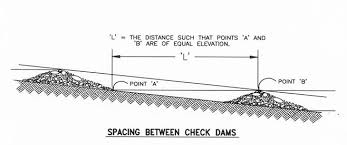
But the big advantage was that since they were already sedentary and storing, any and all advances that they made would translate in more food, and food could be consumed when it was needed the most.
This is exactly what we observe in the Middle East, where as climate became more seasonal, the Kebarian nomadic hunter gatherer culture was replaced by the Natufian sedentary hunter gatherers, which later gave way to the settled farmers such as the PPNB culture.
Ok so now I've told you what I think happened. But what about data? First of all, did more seasonal places adopt agriculture earlier? Here's a binned scatterplot of the date of adoption and the difference between summer and winter temperatures, or zero whichever is greater. 
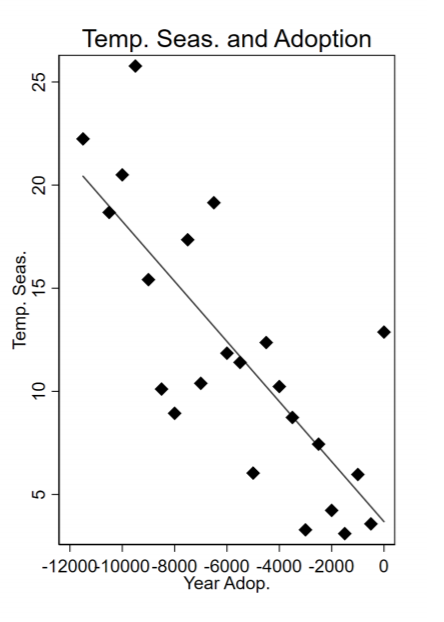
Clearly the more seasonal the weather, the earlier the locals started farming! Here is the evolution of climate seasonality in the seven locations, in relation to when people started farming, or became sedentary (when it's a different date and is known). 
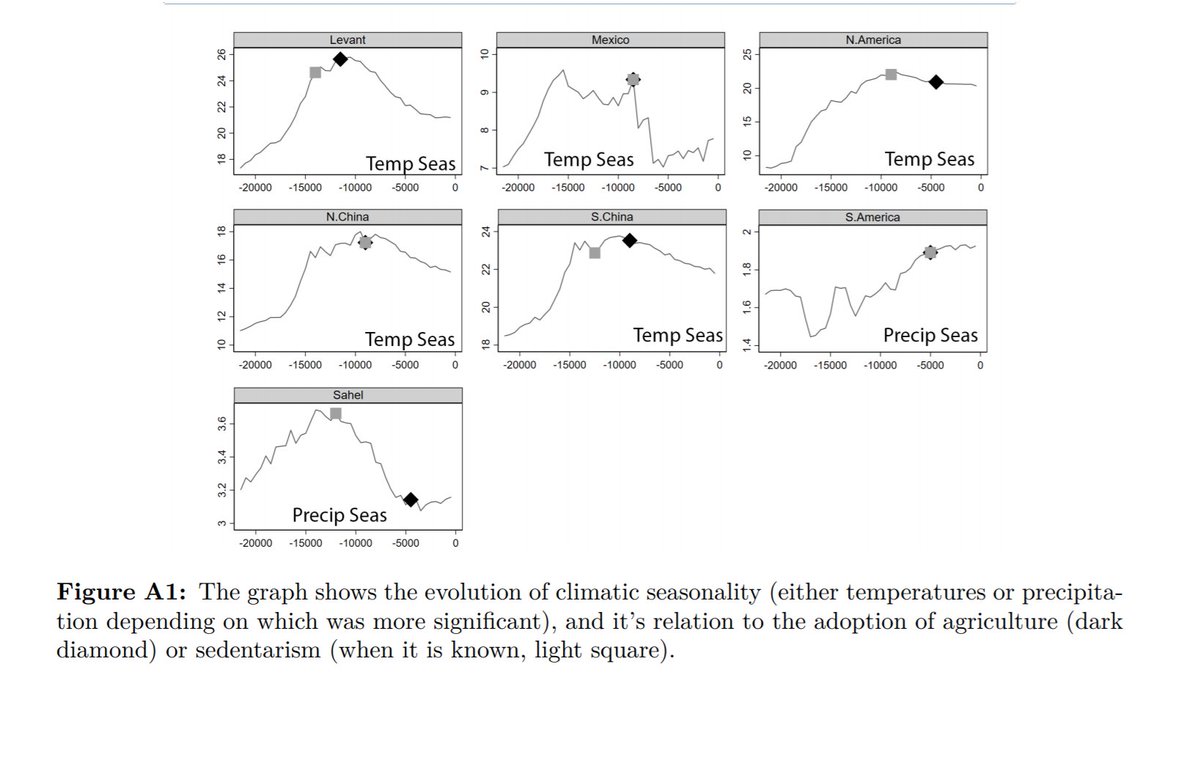
How well does seasonality perform? We can just see what predictions we get by feeding a linear model the locations and dates when agriculture was adopted as a dependant variable, and in turn weather averages, weather seasonality, and both at the same time. 
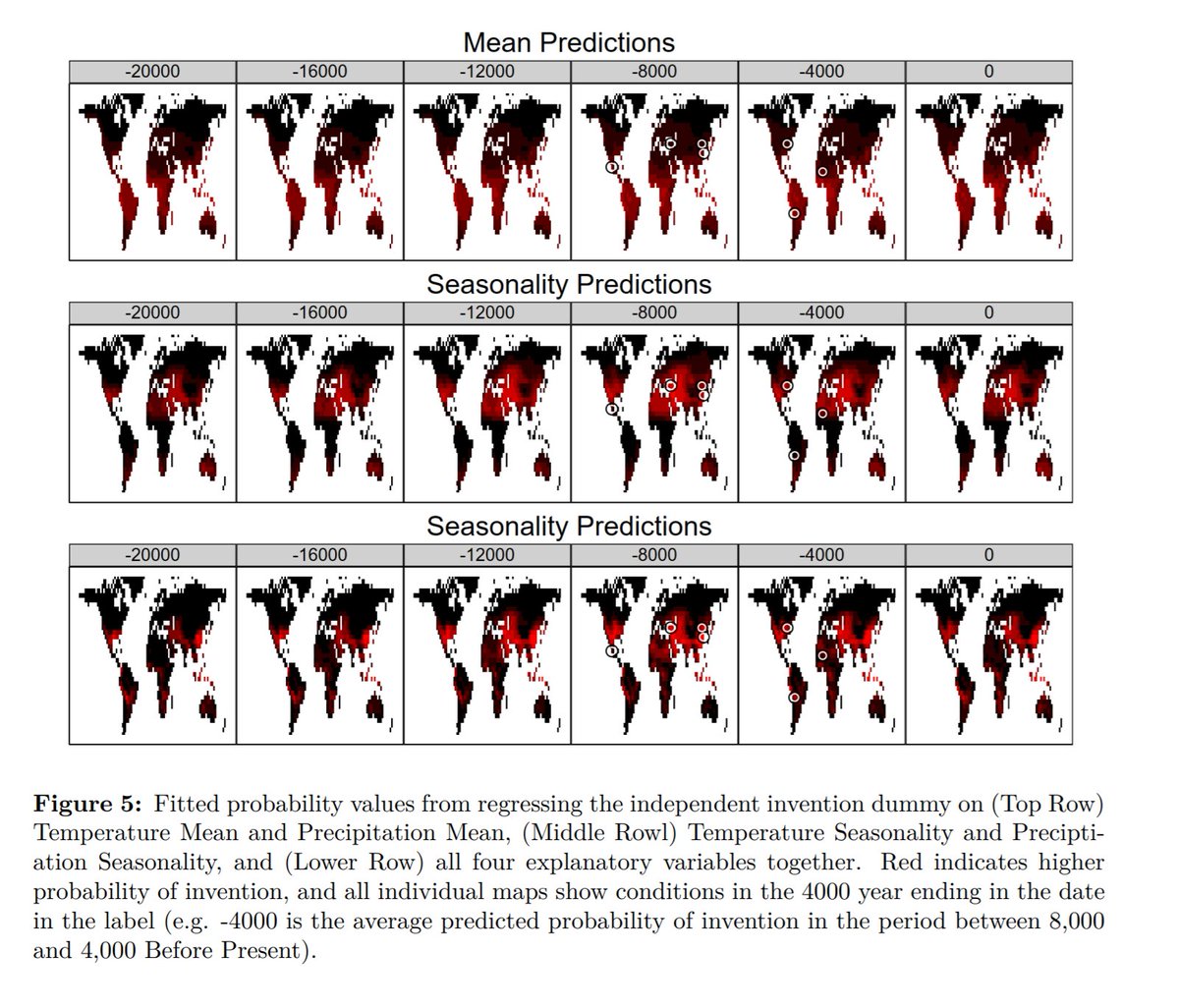
More red-> higher predicted probability of adoption using those particular variables. We can see that using climate averages does relatively poorly. If you wanted warm wet weather, the tropics was the place to do it, before or after the ice age. Seasonality does a lot better.
• • •
Missing some Tweet in this thread? You can try to
force a refresh

